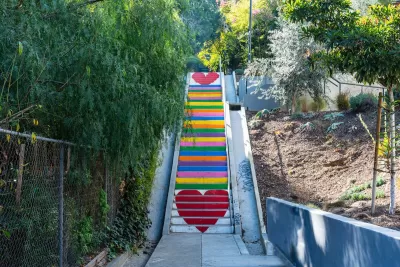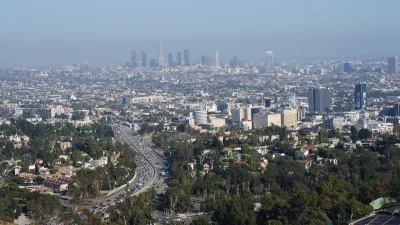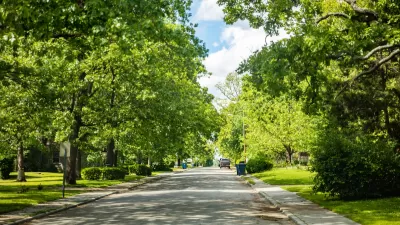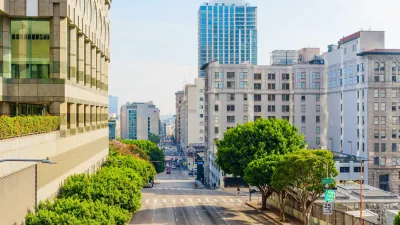The Los Angeles Urban Forest Equity Collective has developed an equity-centered tree-planting framework and toolkit to address historic underinvestment and mitigate extreme heat in vulnerable neighborhoods.

Trees play a critical role in mitigating extreme heat, a growing and deadly impact of climate change. Research suggests that increasing tree canopy in the most heat-vulnerable neighborhoods could save up to half of the lives lost to heat-related incidents. However, tree planting in Los Angeles faces challenges such as its extensive roadways, semi-arid climate, and socioeconomic disparities.
In response, UCLA researcher Edith de Guzman co-founded the Los Angeles Urban Forest Equity Collective, bringing together forestry experts, city officials, community organizations, and researchers to address the legacy of underinvestment in certain neighborhoods. The Collective recently published a decision-making framework and toolkit to advance urban forest equity and improve health outcomes through inclusive, practical solutions.
As reported by Mara Elana Burstein, the framework emphasizes equity-centered tree planting, featuring public engagement strategies co-developed with community organizations to ensure resident voices are prioritized. By rethinking traditional approaches, the Collective developed innovative strategies to "green" historically underserved neighborhoods that have lacked the resources to enjoy the environmental benefits seen in wealthier areas. Their work has produced actionable steps for municipal leaders, local organizations, and community members to overcome barriers to equitable tree planting.
As part of their efforts, the Collective introduced hyperlocal implementation strategies for Central Alameda and Sylmar, two Los Angeles neighborhoods with distinct challenges. By collaborating with residents and city officials, the team identified cooling solutions tailored to each area, from dense public housing in Central Alameda to the sprawling single-family homes of Sylmar. These examples showcase how the tools and framework can drive equitable urban greening and create healthier, more resilient communities.
FULL STORY: LCI co-develops decision-making framework and toolkit that centers equity in tree planting

Trump Administration Could Effectively End Housing Voucher Program
Federal officials are eyeing major cuts to the Section 8 program that helps millions of low-income households pay rent.

Planetizen Federal Action Tracker
A weekly monitor of how Trump’s orders and actions are impacting planners and planning in America.

The 120 Year Old Tiny Home Villages That Sheltered San Francisco’s Earthquake Refugees
More than a century ago, San Francisco mobilized to house thousands of residents displaced by the 1906 earthquake. Could their strategy offer a model for the present?

NYC Outdoor Dining Could Get a Re-Do
The city council is considering making the al fresco dining program year-round to address cost concerns from small businesses.

HSR Reaches Key Settlement in Northern California City
The state’s high-speed rail authority reached an agreement with Millbrae, a key city on the train’s proposed route to San Francisco.

Washington State Legislature Passes Parking Reform Bill
A bill that would limit parking requirements for new developments is headed to the governor’s desk.
Urban Design for Planners 1: Software Tools
This six-course series explores essential urban design concepts using open source software and equips planners with the tools they need to participate fully in the urban design process.
Planning for Universal Design
Learn the tools for implementing Universal Design in planning regulations.
Ada County Highway District
Clanton & Associates, Inc.
Jessamine County Fiscal Court
Institute for Housing and Urban Development Studies (IHS)
City of Grandview
Harvard GSD Executive Education
Toledo-Lucas County Plan Commissions
Salt Lake City
NYU Wagner Graduate School of Public Service





























